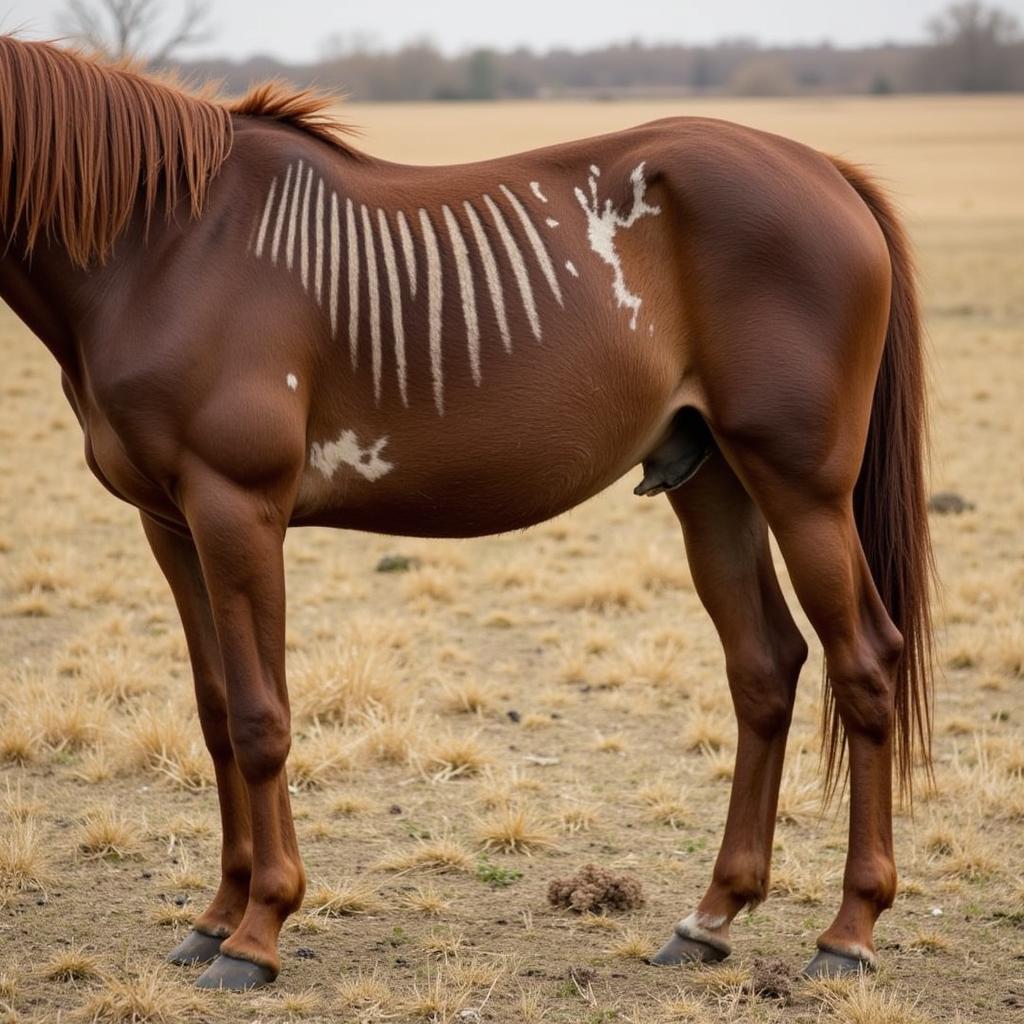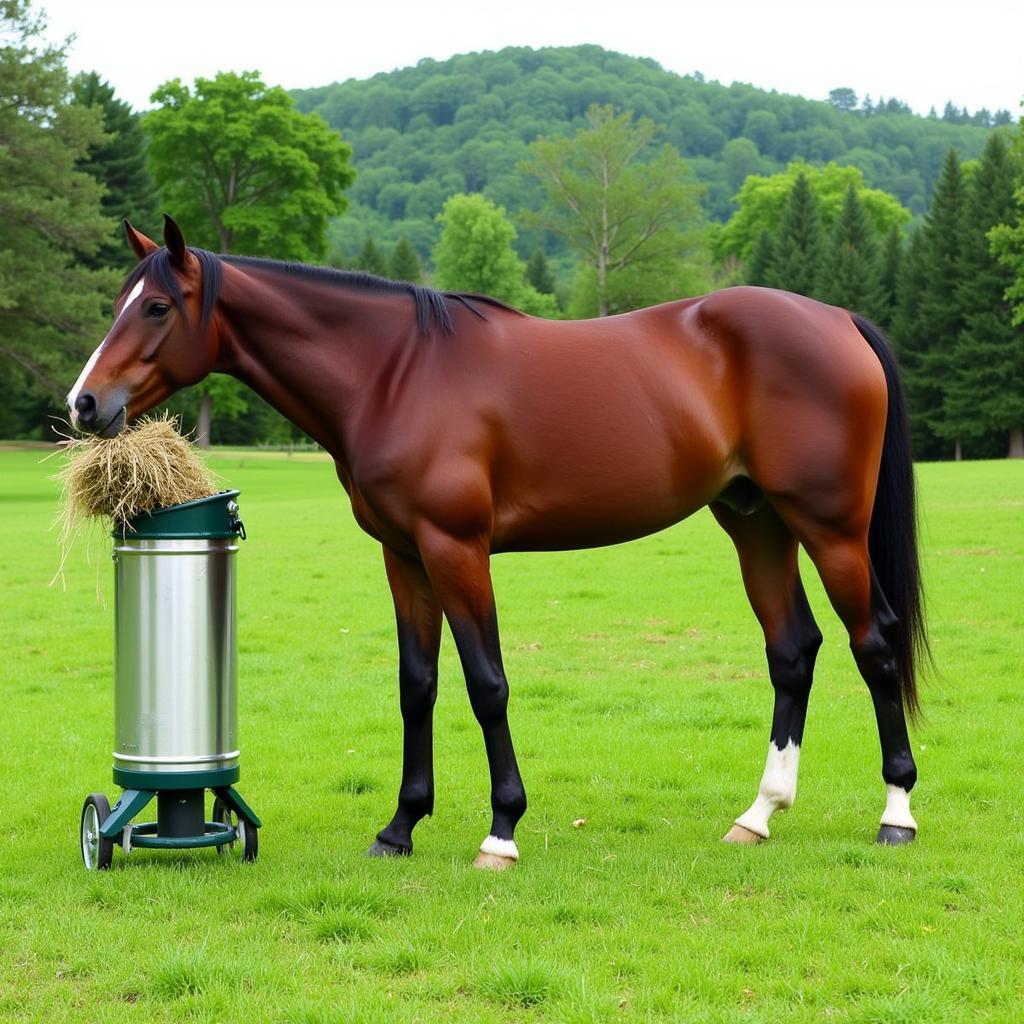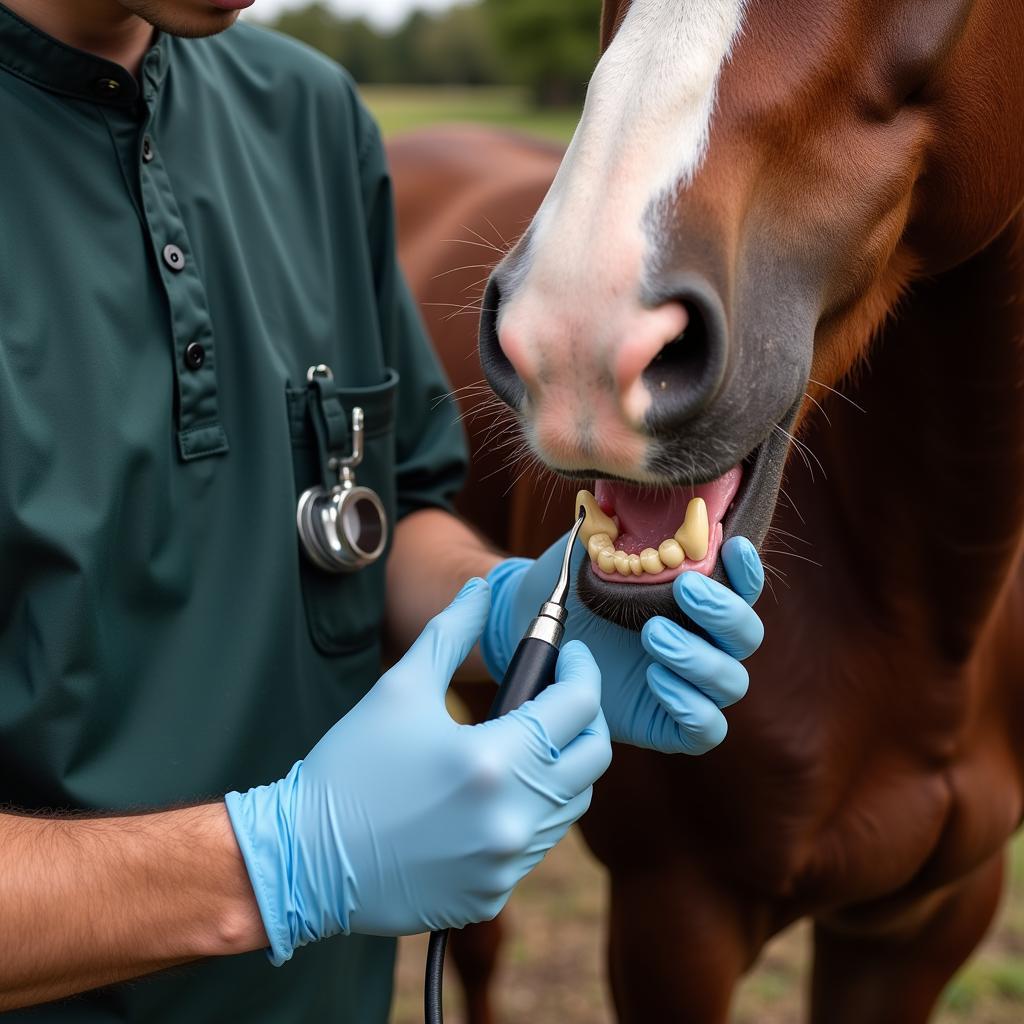Skinny Horses are a heartbreaking sight, raising immediate concerns about their well-being. This comprehensive guide delves into the reasons behind a horse’s thin condition, exploring various factors from dietary deficiencies and parasites to underlying health issues. We will discuss how to identify a skinny horse, the steps to take to address their condition, and the importance of preventative care.
Recognizing a Skinny Horse: Beyond the Ribs
While visible ribs are often the first indicator, there are other subtle signs that a horse is underweight. Look for a lack of muscle mass over the back and hindquarters, a prominent spine, and a hollow appearance around the flanks.  Skinny horse exhibiting prominent ribs and spine The horse’s coat may also appear dull and rough, and their demeanor might be lethargic or withdrawn. Don’t rely solely on visual assessment; consulting with a veterinarian is crucial for accurate diagnosis and treatment.
Skinny horse exhibiting prominent ribs and spine The horse’s coat may also appear dull and rough, and their demeanor might be lethargic or withdrawn. Don’t rely solely on visual assessment; consulting with a veterinarian is crucial for accurate diagnosis and treatment.
Dietary Deficiencies: The Foundation of Equine Health
Just like humans, horses require a balanced diet to thrive. Insufficient calorie intake, inadequate protein levels, or a lack of essential vitamins and minerals can all contribute to weight loss.  Horse grazing on hay in a green pasture Forage, such as hay or pasture, should form the foundation of a horse’s diet. Depending on the horse’s age, workload, and metabolic needs, supplemental grain, vitamin and mineral supplements, and even specialized feeds may be necessary.
Horse grazing on hay in a green pasture Forage, such as hay or pasture, should form the foundation of a horse’s diet. Depending on the horse’s age, workload, and metabolic needs, supplemental grain, vitamin and mineral supplements, and even specialized feeds may be necessary.
Parasites: A Silent Threat to Equine Weight
Internal parasites, like worms, can wreak havoc on a horse’s digestive system, preventing them from absorbing nutrients effectively. Regular deworming is essential to control parasite loads and ensure optimal nutrient absorption. Different deworming protocols exist, and consulting with a veterinarian to develop a tailored plan based on your horse’s specific needs and geographic location is essential. This tailored approach ensures effective parasite control while minimizing the risk of resistance development.
Underlying Health Issues: Unveiling Hidden Causes
Sometimes, a horse’s thin condition is a symptom of a more serious underlying health problem. Dental issues can make it difficult for horses to chew and digest food properly, leading to weight loss.  Veterinarian conducting a dental exam on a horse Other potential causes include chronic diseases, metabolic disorders, and even stress. A thorough veterinary examination, including blood work and other diagnostic tests, is crucial to identify and address any underlying medical conditions.
Veterinarian conducting a dental exam on a horse Other potential causes include chronic diseases, metabolic disorders, and even stress. A thorough veterinary examination, including blood work and other diagnostic tests, is crucial to identify and address any underlying medical conditions.
The Importance of Preventative Care: Proactive Steps for a Healthy Horse
Preventing a horse from becoming skinny is always better than treating the condition after it develops. Regular veterinary check-ups, a balanced diet, a consistent deworming schedule, and attention to dental health are the cornerstones of preventative care. Providing a stress-free environment, adequate shelter, and regular exercise also contribute to a horse’s overall well-being.
Conclusion: Caring for Skinny Horses
Addressing a skinny horse requires a multifaceted approach that considers diet, parasite control, and potential underlying health issues. By understanding the various factors that contribute to weight loss in horses and taking proactive steps to address them, we can ensure our equine companions lead healthy and fulfilling lives. If you suspect your horse is underweight, don’t hesitate to contact a veterinarian for guidance.
FAQ
- What are the first signs of a skinny horse?
- How can I tell if my horse’s diet is adequate?
- How often should I deworm my horse?
- What are some common health problems that can cause weight loss in horses?
- How can I prevent my horse from becoming skinny?
- What should I feed a skinny horse to help it gain weight?
- When should I call a veterinarian about my skinny horse?
For support, contact us at Phone Number: 0772127271, Email: [email protected] Or visit us at: QGM2+WX2, Vị Trung, Vị Thuỷ, Hậu Giang, Việt Nam. We have a 24/7 customer service team.